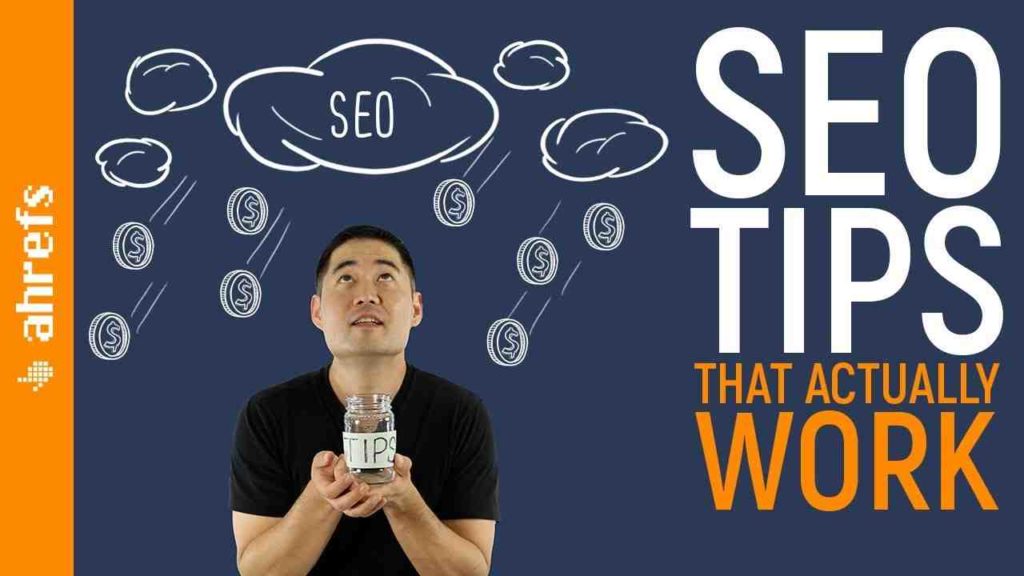1. Check For Google Penalties
Contents
- 1 1. Check For Google Penalties
- 2 2. Run A Keyword Audit
- 3 3. Check Your Google Business Profile
- 4 4. Find On-Page SEO Issues
- 5 5. Perform A Backlink Audit
- 6 6. Evaluate Your Online Reputation
- 7 7 – 15. Download The Free Local SEO Guide
- 8 How much is local SEO?
- 9 Who is the best local SEO company in the nation?
- 10 What is basic SEO knowledge?
- 11 Why is SEO important?
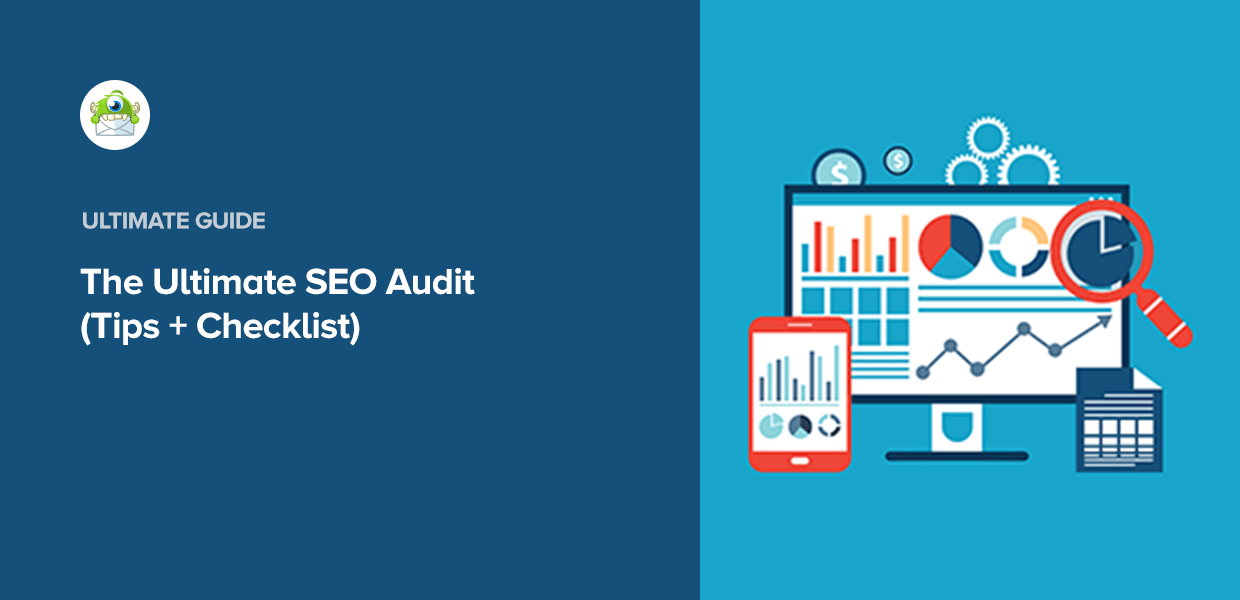
The first step is the easiest place to find a hidden opportunity to help you rise to the top of your ranking. Is your website currently under penalties from Google?
To check for penalties, your website needs to be connected to Google Search Console. If not, you, or the site owner, will have to connect and view first.
Log in to Google Search Console as a site owner and select the website you are reviewing in the Search properties.
Image from Google Search Console, August 2022
Then click on Security & Manual Actions and select Manual actions.
Image from Google Search Console, August 2022
If it says, “No issues found,” that’s great!
If it says anything else, there’s your first batch of problems to solve.
2. Run A Keyword Audit
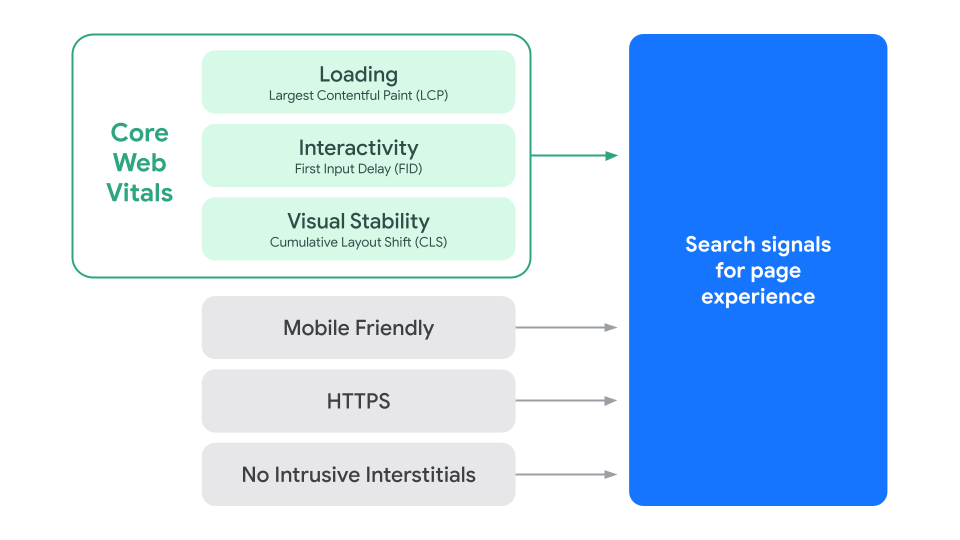
This is your first exciting dive into uncovering the hidden possibilities of local SEO. There’s a lot you can find and adjust in this step!
For this step, you will need a list of the keywords you are trying to rank for.
You can guess some of the key words yourself.
For example, if you have a bakery shop in London, that is already one important candidate – “bakery shops in London”.
Once you’ve found your keywords, check them for two things:
Let’s start by looking for keyword rankings.
How To Discover Keyword Rankings
First, you need to know if your website appears on the search engine results page (SERP) at all. Your ultimate goal is to appear on page 1 or in a 3-Pack.
You can try Googling keywords from your keyword list one by one, but it will be faster to use an SEO tool and check them all at once.
Image from WebCEO.com, August 2022
Just check your site rankings in WebCEO’s Ranking tracking tool.
The settings of this tool allow targeting in specific areas, which is what we need for local SEO.
It can even see some interesting things to look for like a local park, hotels, or Information Panel.
Once you receive the list, check the columns Position and SERP; they show where your site is located.
It also doesn’t hurt to look at the Local monthly search column, as it shows how often users type those keywords into Google.
If one of these columns is not in the report, click the Manage columns button to add it.
Image from WebCEO.com, August 2022
Now, let’s analyze your search terms for the target user.
How To Discover Keyword Search Intent
Search intent comes down to understanding that potential customers type into Google to find different results that match their needs.
For example, a seller can type “buy blue iced baby boy sugar cookies in London” – this type of search has a “Transactional” purpose. You want to make sure that your keywords increase the traffic or the traffic target.
So, ask yourself these questions:
Now that you understand your position within the search for keywords and the purpose behind those keywords, you now have the information you need to change your content strategies to increase your website’s rankings.
3. Check Your Google Business Profile
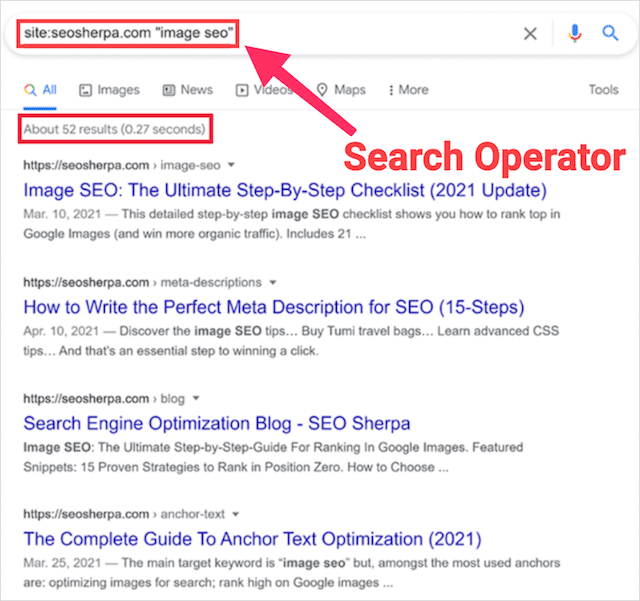
First, do you or your client have a Google Business Profile (GBP) listing?
If not, that’s very bad news for your local SEO. This solution is a quick win for your local search efforts, making it a great hidden opportunity!
If you do, log into your Google Business Profile and search for:
Is Any Information Missing From Your Google Business Profile?
An empty field in GBP is a hole in your local SEO. All fields must be filled out with complete, up-to-date information about the business:
Are Keywords Present & Used Properly On Your Google Business Profile?
Keys (especially local) in your GBP are a major factor.
They can ensure that your business will appear in Google’s competitive local pack.
The catch is, you can’t just put them in a header and call it a day: that’s against Google’s rules, which require you to use the business’ real-world name.
However, fraudulent owners only include keywords when naming their businesses. The most effective loophole satisfies both the guidance and ranking algorithm.
The only thing to worry about is making the name sound natural.
Image from Google, August 2022
Key words must be included in GBP units. Listing them is optional, although recommended.
Are Photos & Other Images Uploaded On Your GBP?
There are a variety of images that you can upload to your Google Business Profile. The more you have, the better.
It goes without saying that all images must be of high quality.
Video, too, should be mentioned as another type of visual. If there is, check it out, and see if you can find any problems.
What Is The Posting Activity Like?
GBP allows you to create content in order to communicate with your target audience. Check out the delivery service on the page.
Posting once a month is considered low, so ask yourself these questions:
Common and different messages can ensure that this feature is used correctly. It is also good for articles to have links, pictures, and geo-references.
Is There An FAQ Page?
An FAQ is a powerful asset to any website, and customers are guaranteed to have questions.
4. Find On-Page SEO Issues

On-page optimization is extremely important, making it a huge hidden advantage – especially if your competition isn’t doing this.
We agree that it can be a lot of work, and there is also a lot of room for error, but if you get everything right, you will come out on top!
Don’t waste time dealing with problems. Find them all in WebCEO’s On-Site Issues Overview report.
Image from WebCEO.com, August 2022
This tool checks all pages of the site at once, so you will be able to catch individual page SEO errors.
For local SEO analysis, here are the most important issues to keep an eye on:
Naturally, any other issues presented in the report should not be ignored. It all affects the website.
5. Perform A Backlink Audit
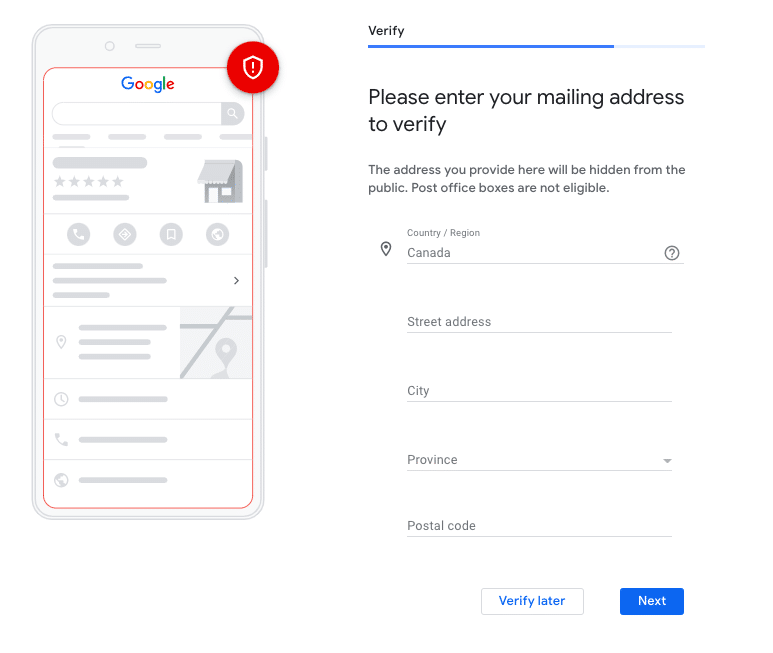
Backlinks are the most powerful ranking of all, making it a, you guessed it, hidden advantage to rank above your competition.
Backlinks can make or break your SEO, even if you do everything else right. No SEO analysis is complete without backlink analysis, and local SEO is no exception.
So hurry up. Check your link profile with WebCEO’s Backlink Checker.
Image from WebCEO.com, August 2022
Once your report is ready, it’s time to check your backlink profile.
Based on this analysis, you will be able to adjust the factors affecting your customer link building strategy.
6. Evaluate Your Online Reputation
A local business lives or dies by its reputation among customers. Good thing we have the internet, right? There is no place like knowing what people think about you, and losing all sleep over it.
Hopefully, your customers will still sleep well after you’re done with this step. What should you look for?
Collect Reviews For Your Website & Potential Keywords
Any self-respecting local business should be collecting customer reviews on its website. Good and bad reviews, full details – be sure to listen to everything. Reviews are especially important if they contain keywords for your site.
The review section of Google Business is another area you may overlook. And if your client has created listings for their business on any review platforms, be sure to check there.
Be Sure Ratings Are Included In Your Reviews
There are reviews, often with star ratings on the same page, too. In fact, on top of that, they are very helpful for SEO.
But it’s also common for business directories to show ratings that differ from user reviews.
If your client’s website appears in Google’s local pack, it’s the fastest way to see your client’s rankings. Of course, a thorough analysis of local SEO requires more information from other areas.
Get Notified When Your Brand Is Mentioned
Everyone wants their brand to be the talk of the town. The problem is, there’s only so much you can hear with your ears and so much self-Googling you can do on your own.
Fortunately, there are tools to pick up the word on e-streets.
Who, where, what, and when – track everything you talk about online with WebCEO’s Web Buzz Monitoring tool. Just add keywords related to the local SEO business you are researching (its name will do the most). The tool will show you the sites and tweets where they were delivered.
If your client has created social media pages for their business (as anyone does), you should monitor them as well.
How do you know if they run well? Make your decision by answering these questions:
As a rule of thumb, more work (from the owner and users) on a social media page is good. If you find any problem there, write it down.
7 – 15. Download The Free Local SEO Guide
Would you like some professional tips for DIY local SEO analysis?
Download your local SEO guide below. With these and pro-level SEO tools at your fingertips, you’ll be able to assess any website’s local SEO status – whether it’s yours or your client’s.
This document is intended for WebCEO users only. Register now to enter the world of experts!
The views expressed in this article are those of the contributor.
How much is local SEO?
How Much Does Local SEO Cost on Average? For a one-time project focused on analysis, research, cleaning, and optimization the average cost of a Local SEO project would range from $300 – $1500 with an average cost around $750.
Is Local SEO Paid? Small Local SEO cost usually ranges from 5000 to 10000 per month. This usually involves pay-per-click advertising or more targeted social media efforts to reach local audiences.
How much will my SEO cost?
How much can you expect to spend on SEO? If you hire a top-level SEO company to do a local campaign, expect to pay $500.00 per month. A national or international campaign will require a minimum budget of $2,500 to $5,000 per month. Some firms offer a “trial package†at a low price, with no contract.
How much do you charge for local SEO?
How Much Does Local SEO Cost on Average? For a one-time project focused on analysis, research, cleaning, and optimization, the average cost of a Project SEO project would range from $300 to $1500 with an average cost of $750.
How much do you charge for SEO services?
SEO pricing is often not straightforward. There are many things that make it difficult. For hourly rates, the typical cost is around $76-150 per hour. For the monthly maintenance, most of the respondents are between $1,000-2,000/month.
How much do freelancers charge for SEO?
Hiring an experienced SEO freelancer or agency by the hour usually costs anywhere between $50-$150 per hour. Yes, you can find people who charge a lot less or more than this hourly rate. For example, this SEO hourly rate breakdown found that 6% of SEO providers charge more than $200/hour.
How much should I pay local SEO?
Daily local SEO campaigns cost between $300 and $200 per month depending on the needs of your business, your competition, and your location.
How much does local SEO cost per month?
In 2021, the cost of SEO for local campaigns is approximately $1,000 per month, while the national SEO campaign cost is approximately $2,500 – $,7500 per month on average. The cost of SEO services varies depending on the complexity of the keywords and the services included.
How much does SEO cost per month for small business?
According to a survey of 300,000 business owners and more than 350 agencies, freelancers, and consultants, the average SEO cost for a Small Business is $501-$1,000 per month worldwide. The average cost of SEO for small businesses in the United States is $2,500 to $5,000 per month.
Is it worth paying for local SEO optimization?
SEO is important if you have the right strategy in place and work with a partner who knows how to get results. About 93% of online activities start with a search engine, and the average rate of SEO leads is much higher than that of traditional marketing. So, SEO provides an amazing return on investment (ROI).
Who is the best local SEO company in the nation?
6 of the best Local SEO companies
- NP Digital – Best for Conversion-Driven Local SEO. …
- Searchbloom – Best for Local and Technical SEO. …
- BrightLocal – Advanced Local Search Performance Analysis. …
- Digital Marketing Agency – Best for Global Local Search. …
- High Visibility – Ideal for Franchise / Multi-Location.
What does a local SEO company do? Local SEO is a search engine optimization (SEO) strategy that helps your business become more visible in local search results on Google. Any business with a physical location or operating environment can benefit from local SEO.
Who is the biggest SEO in the world?
Aaron Wall is the founder of SEOBook, a leading SEO website that claims to offer the number one SEO training program, complete with over 100 custom training modules, a private forum, exclusive startup tools, and other resources.
How many SEO companies are there?
There are 30,000 SEO companies in the US.
Who is SEO expert?
An SEO expert (also known as an “SEO expertâ€) is a person who optimizes websites in order to achieve higher search engine rankings. Put another way: An SEO expert is someone who knows how to get more traffic from search engines.
What is the largest SEO?
ReachLocal is the largest SEO agency with a focus on increasing local search visibility. They specialize in working with location-bound companies in industries such as real estate, home services, and automotive sales and service, and their clients have included TGM Associates, Mr.
What is basic SEO knowledge?
At its most basic, "SEO" means finding ways to increase your site’s visibility in the search results of web visitors. This usually means more traffic to your site.
Why is SEO important?
In short, SEO is important because it makes your website more visible, and that means more traffic and more opportunities to convert prospects into customers.
Is the sea a sea? A sea represents a much larger area of open water than an ocean. By definition, an ocean is a small part of the ocean and is usually located on land. Therefore, all oceans are found in places where the sea meets the land. The seas are partially landlocked.
What is the sea made up of?
ocean water, the water that makes up the oceans and seas, covers more than 70 percent of the Earth’s surface. Seawater is a complex mixture of 96.5 percent water, 2.5 percent salt, and small amounts of other substances, including dissolved inorganic and organic matter, particles, and small amounts of atmospheric gases.
What makes water a sea?
The two most common ions in seawater are chloride and sodium. These two make up over 90% of all dissolved ions in seawater. The amount of salt in seawater (its saltiness) is about 35 parts per thousand; in other words, about 3.5% of the weight of seawater comes from dissolved salts.
Why is the sea is salty?
The salt in the sea comes from two sources: water that flows from the land and the vents under the sea. Rocks on earth are the main source of dissolved salt in seawater. Rainfall that falls on earth is slightly acidic, so it washes away rocks.
Are seas salt water?
Seas are larger than lakes and contain salt water, but the Sea of Galilee is a freshwater sea. The United Nations Organization on the Law of the Sea states that the entire ocean is “the sea”.
What are the 7 seas of the world?
The seven oceans include the Arctic, North Atlantic, South Atlantic, North Pacific, South Pacific, Indian, and Southern oceans. The exact origin of the phrase ‘Seven Seas’ is uncertain, although there are references in ancient literature dating back thousands of years.
Why is it called 7 seas?
The term “Seven Seas” is spoken by ancient Hindus, Chinese, Persians, Romans and other cultures. The old term referred to bodies of water along the trade routes and waterways of the region; although in some cases the seas are myths and not real bodies of water.
What are the 7 seas and 5 ocean?
More recently, the seven oceans have been used to describe five ocean regions – the Arctic, North Atlantic, South Atlantic, North Pacific, South Pacific, Indian, and Southern Oceans.
How many seas are on the earth?
Generally, an ocean is defined as the part of the ocean that is partially surrounded by land. Considering that definition, there are about 50 oceans around the world. But that number includes bodies of water not often thought of as oceans, such as the Gulf of Mexico and Hudson Bay.
What does sea mean?
Definition of the sea 1a : a large amount of salt water covers a large area of the earth : the waters of the earth are separated from the land by the air. b: a body of salt water of the second place more or less closed to the Mediterranean Sea. c: the sea.
What does sea stand for in education?
State education agencies (SEAs) are at a crossroads regarding their role in Kâ12 public education.
What is the meaning of sea in life?
Throughout history, it has been seen as a symbol of strength and power. Today, it is often seen as a symbol of mystery, eternity, calm, hope, and even truth.
What does the phrase by sea means?
: by boat We traveled by sea.

